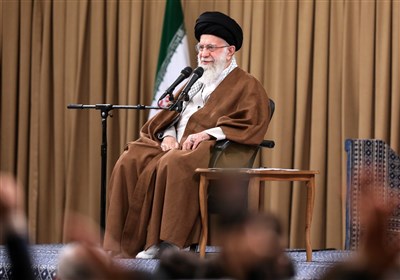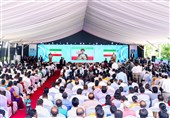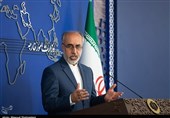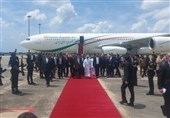Iran, IAEA, G5+1 Set to Hold Trilateral Meeting Next Week
TEHRAN (Tasnim) – Experts representing Iran, the Group 5+1 (the five permanent UN Security Council members plus Germany), as well as the International Atomic Energy Agency (IAEA) are expected to meet in the Austrian capital of Vienna on December 9 and 10.
The upcoming session is meant to discuss the implementation of a landmark deal struck between Iran and the six major world powers over Tehran’s nuclear program.
Iran and the G5+1 (also known as P5+1 or E3+3) signed a six-month deal on Tehran’s nuclear program after three rounds of intensive talks in the Swiss city of Geneva on November 24.
The deal is intended to allow time to negotiate a comprehensive agreement on the nuclear program.
In exchange for Iran agreeing to limit certain aspects of its nuclear activities and allow more inspection of its nuclear facilities, the six world powers have agreed to impose no new sanctions on Iran and to suspend some existing ones on its trade in petrochemicals, automobiles, gold and precious metals, civil aviation parts, and food and medicine. They will also let Tehran receive a small portion of its frozen assets while a permanent agreement is sought.
The joint expert meeting in Vienna will reportedly be held at the level of foreign ministry directors general representing Iran and the G5+1, with the IAEA deputy director general in attendance.
The Iranian representative in the forthcoming meeting is likely to be Foreign Ministry’s Director General for International and Political Affairs Hamid Baeedinejad.
He was also one of the nuclear negotiators on the Iranian team during Geneva talks.
And the IAEA will be presented by Herman M.G. Nackaerts, the agency’s deputy director general, and also head of the Department of Safeguards at the IAEA.
The Department of Safeguards is responsible for verifying that nuclear material placed under safeguards is not diverted to nuclear weapons or other nuclear explosive devices and that there is no undeclared nuclear material or activities in non-nuclear weapons states party to the Non-Proliferation Treaty (NPT).
Among the issues to be discussed at the meeting is IAEA experts’ inspection of Gachin uranium mine in Badar Abbas.
Earlier, an Iranian official, who spoke on the condition of anonymity, said, “The goal of that meeting is to set a date for the inspection (by IAEA experts) of the Gachin (uranium) mine in Bandar Abbas province and the implementation of four other articles of the (Geneva) agreement.”
On November 11, Iran and the IAEA signed an accord under which Iran agreed to give inspectors access within the next three months to two key nuclear sites: the country’s main uranium mine at Gachin, near Bandar Abbas, and a plant that produces heavy water, a coolant to be used in Iran’s Arak research reactor.
Under the IAEA Safeguards Agreement, Iran is not obliged to allow such inspections but Tehran has, on a voluntary basis, agreed to allow the agency's inspectors access to the two facilities.
Meanwhile, the international nuclear watchdog said in a report on November 14 that Iran sharply slowed down the expansion of its nuclear program over the past three months.
Iran had invited the UN agency to visit the Arak heavy-water production plant on December 8.





